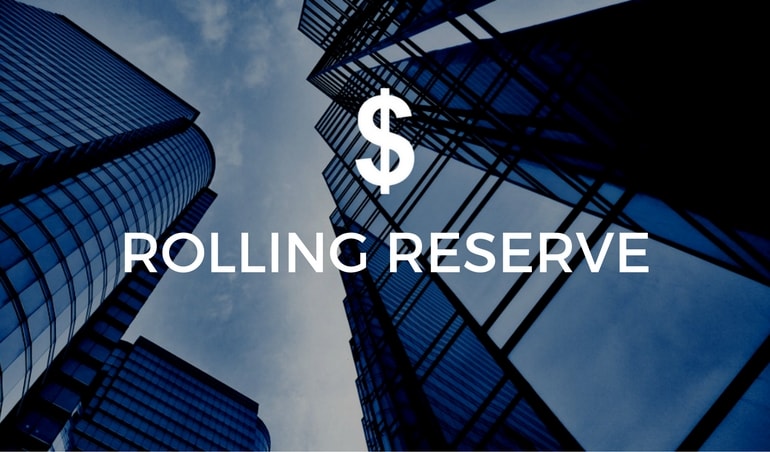
What is a Rolling Reserve Account?
A rolling reserve account is a financial arrangement used by merchant account processors to manage risks associated with payment processing and transactions. It is a type of reserve fund held by payment processors, such as acquiring banks or high risk merchant account providers, to mitigate potential losses from chargebacks or other financial risks.
In this setup, a portion of a business’s revenue is held in a reserve account for a specific period, usually around 180 days. The reserve amount is typically a percentage of the business’s daily sales or transaction volume, and it can be adjusted based on the perceived level of risk associated with the business’s industry, chargeback history, or creditworthiness.
The term “rolling” refers to the continuous replenishment of the reserve. As each day’s transactions are processed, the oldest reserves are released and replaced with funds from new sales. This process ensures that the reserve remains active and ready to cover potential losses, while allowing the business to access some of its funds on an ongoing basis.
How Does a Rolling Reserve Account Mitigate Chargeback Losses?
Rolling reserve accounts offer protection to payment processors and act as a safety net against potential financial liabilities. They are essential for safeguarding payment systems like online banking ePayments, thus ensuring financial stability, especially in high-risk merchant account industries or for businesses with limited credit histories.
The rolling reserve account mitigates Chargeback Losses in the following ways:
1) Chargeback Protection: High chargeback rates can be detrimental to payment processors and merchants. By maintaining a rolling reserve, payment processors can cover potential chargebacks and other financial liabilities, reducing the risk of financial losses.
2) Risk Management: Some industries, like subscription continuity merchant accounts, are more susceptible to fraudulent activities and excessive chargeback ratios. A rolling reserve helps manage the risks associated with these industries, ensuring funds are available to cover unexpected losses.
3) Business Stability: Rolling reserves contribute to the stability of merchant payment processors by providing a financial buffer in case unforeseen chargeback losses occur, fostering a healthier payment ecosystem.
4) Limited Credit History: For new businesses or merchant account owners with limited credit histories, rolling reserves can help build trust and minimize risks. As the business establishes a positive track record, the reserve requirements may be adjusted or lifted.
5) Compliance and Regulation: Regulatory bodies or payment networks may mandate rolling reserves to ensure compliance with industry standards and protect consumers’ interests.
Why Is a Rolling Reserve Account Necessary?
Rolling reserve accounts help manage chargeback losses by providing funds to cover chargeback amounts and associated fees, offering a buffer during high-risk periods, and offsetting potential losses from fraudulent transactions. As the reserve is gradually replenished with new sales, it allows for a controlled release of funds, providing financial flexibility while maintaining a protective balance.
Before signing a rolling reserve agreement, merchants should carefully assess the financial impact, review the release schedule, and understand the risk assessment process. They should also be aware of chargeback handling procedures, potential review and adjustments, rolling reserve disbursements, contract termination terms, and any alternative risk management options available, such as a Chargeback Alert Service, to assist in chargeback reduction.
Final Concerns on a Rolling Reserve Account:
In conclusion, rolling reserve accounts play a vital role in managing payment processing risks and financial stability for businesses. Merchants should thoroughly understand the terms and implications before agreeing to a rolling reserve arrangement to make informed decisions and safeguard their financial interests. Keep in mind that a Rolling Reserve Requirement is not really a negative, but will protect you from chargeback losses and mitigate a potential nightmare, To further reduce your risk of credit card chargebacks, look at our white paper, outlining chargeback mitigation.
About The Author

Angela De Steffano
Staff writer at High Risk Merchant Account LLC
Angela is a merchant account specialist and heads the marketing team at HRMA-LLC.

POST UPDATED: August 3, 2023

